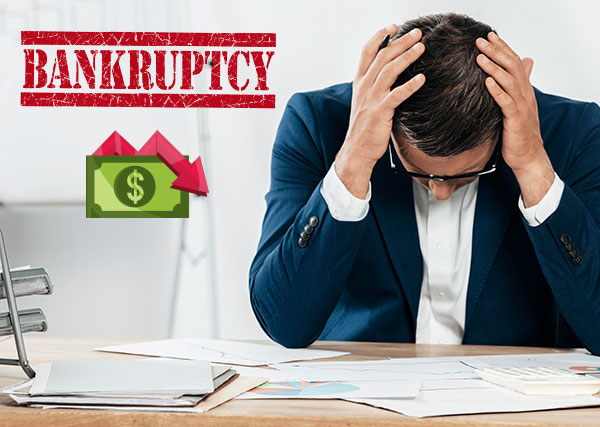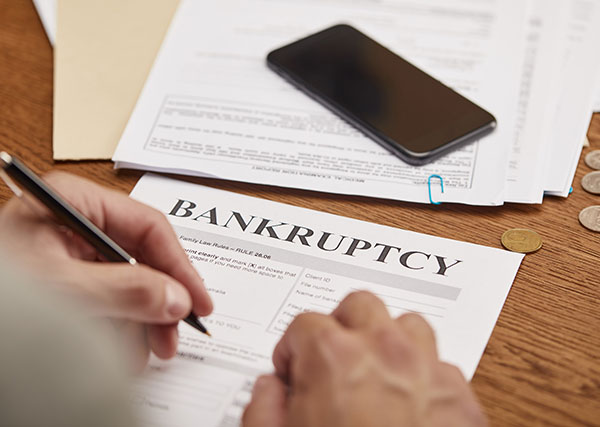Chargebacks & Bad Checks Suck! Then Do This - Florida Webinar
Learn how to handle chargebacks and bounced checks in Florida construction projects to protect your payments.
Last updated:
Sep
26
,
2025
Published:
September 23, 2025
5 mins
Read
Chargebacks on credit cards and bad checks can take a serious toll on a business’s bottom line. Many business owners struggle with how to prevent these losses and protect their cash flow. In Florida especially, both bad checks and chargebacks carry legal and financial consequences that every contractor, supplier, or merchant should understand.
This blog breaks down the risks, explains the laws, and offers practical steps to minimize exposure, including sample letters and insider pro tips used by seasoned professionals.
Understanding Bad Checks
A check is essentially a promise to pay, an IOU. Unlike cash, which can be used immediately, a check must be deposited before funds become available. This creates a window of uncertainty, as banks may take up to 30 days (or longer) to confirm the validity of a check.
There are three common types of bad checks:
- NSF (Non-Sufficient Funds): The check writer doesn’t have enough money in their account.
- Account Not Found: The account is closed, fabricated, or invalid.
- Stop Payment: The issuer deliberately cancels the payment after issuing the check.
A critical point to remember: just because a bank shows the funds as “available” after a deposit does not mean the check has cleared. Banks often front the money temporarily, but the check can still be dishonored later.
Legal Consequences of Bad Checks in Florida
In Florida, passing a bad check is both a civil and criminal offense.
- Checks under $150 = Misdemeanor
- Checks $150 or more = Felony
This means contractors and suppliers must be extremely cautious when accepting checks, especially for large amounts.
.jpg)
Protecting Lien Rights
Florida contractors and suppliers should be cautious when signing lien releases or lien satisfactions if there’s any doubt about a check’s validity.
- Conditional Release: If you sign a conditional release and the check bounces, you still retain your lien rights.
- Unconditional Release: If you sign an unconditional release and the check is bad, you lose your lien rights.
- Lien Satisfaction: Recording a satisfaction also eliminates your lien rights. For this reason, experts recommend accepting only wire transfers for lien satisfactions, since they are immediate and guaranteed.
If accepting a check, businesses should add conditional language to lien releases. A conditional release ensures rights are only waived once payment is fully received and cleared. Free resources like conditional release stamps make this process easier.
.jpg)
Best Practices for Handling Checks
- Never treat a check as equal to cash.
- Do not accept post-dated checks.
- Avoid holding checks for later deposit.
- When possible, collect detailed information from the check issuer, such as name, address, phone, employer, date of birth, driver’s license number, and more. This information strengthens the case if criminal charges become necessary.
Criminal vs. Civil Remedies
If a check bounces, businesses can pursue either criminal or civil remedies.
- Criminal Penalties: Require specific steps, including sending a certified notice within 15 days and reporting to the State Attorney’s Office if payment is not made.
- Civil Penalties: Often easier to pursue. Businesses can recover the face value of the check, up to three times the amount in damages, plus interest and legal fees — potentially four times the original amount.
Sending the proper notice letter is key. If payment is not made within 30 days, businesses gain the right to pursue treble damages in court.
Credit Card Chargebacks: Another Hidden Threat
While bad checks remain a problem, credit card chargebacks are increasingly common. Consumers can dispute transactions up to 60–120 days after purchase. Once a complaint is filed, the bank refunds the customer immediately and initiates a chargeback against the merchant.
How Chargebacks Work
- Consumer disputes the charge.
- Issuing bank refunds the consumer and investigates.
- Merchant’s bank is notified and begins its own investigation.
- Merchant is asked to submit documentation.
- If sufficient proof is provided, the merchant wins. If not, funds are permanently removed — plus fees.
How to Win Chargeback Disputes
.jpg)
Documentation is critical. Merchants must:
- Verify customer identity.
- Obtain signatures on receipts and contracts.
- Ensure business names appear clearly on bills.
- Check card validity and expiration.
- Compare customer signatures with IDs.
- Adhere to security standards, such as chip readers and digital signatures.
- Use strong terms and conditions in contracts that disclaim delays, defects, or variations customers might dispute.
Without this documentation, the chances of winning a chargeback are very slim.
The Safer Alternative: Wire Transfers
If there is ever doubt about a customer’s ability to pay, wire transfers are the safest option. Unlike checks and credit cards, wires are instantaneous and irreversible once received. For lien satisfactions especially, wires should be the only accepted method.
What If You Lose?
Even if a bad check remains unpaid or a chargeback is lost, businesses still have legal recourse. Customers can be sued for:
- Breach of contract
- Unjust enrichment
- Account stated (a recognized debt owed)
While this process takes more time and money, courts apply stricter scrutiny than credit card companies, meaning well-documented businesses often prevail.
Final Takeaway
Bad checks and credit card chargebacks may be common, but businesses in Florida are not powerless. By understanding the law, strengthening documentation, using conditional lien releases, and favoring wire transfers for large payments, contractors and suppliers can protect their cash flow. And even when disputes escalate, both civil and legal remedies exist to help businesses recover losses.
.jpg)
Common Questions Contractors Ask
If I’m paid with a credit card, should I only issue a conditional release until 120 days have passed before giving the final release?
The strictest approach, often called the “gold standard,” would be to wait the full 120 days before issuing a final release since that is the maximum window during which a customer can initiate a chargeback. However, this practice is not common and most clients would find it burdensome. In reality, the risk of a chargeback is relatively small, so many businesses choose to issue releases under normal timelines unless there is a specific reason for concern. A practical approach is to trust customers until an issue arises, and then apply stricter standards only to higher-risk clients.
If I accept a check, satisfy the lien, and then the check bounces, do I have any legal recourse even though I’ve lost my lien rights?
Yes. Even if your lien rights are lost because you issued a satisfaction, you can still pursue multiple legal remedies against the customer or property owner. You may:
- Send a statutory demand letter and wait 30 days for payment.
- File a lawsuit for the bad check itself.
- Sue for breach of contract.
- Pursue claims under unjust enrichment or other legal theories.
While you cannot reassert lien rights once they are satisfied, you still retain the ability to seek monetary damages through the courts.












